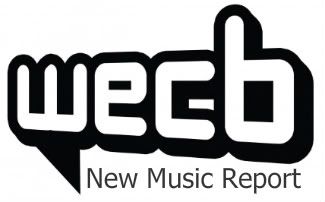
It's been ten years since the Strokes single-handedly (okay, the White Stripes too) sparked the rebirth of Garage Rock with their critically-acclaimed debut "Is This It." An album full of sloppy (in the greatest way possible), lo-fi rock-pop anthems, "Is This It" still remains high atop many "Best Albums of the 00's lists," and is considered a new-era classic. The group's better-than-solid sophomore effort, "Room on Fire," treaded similar waters and is still regarded as one of the better follow-ups in recent memory. With 2006's "First Impressions of Earth" the group cemented the fact that they were determined to add a new element to their sound and outrun the carefree party rock of their first two albums. The songs lived up to the album's title however, offering the self-concious sound of a band who was unsure of where to go, but would not return to where they have already been. Though the album was generally panned by critics, it displayed spastic creativity and the group's desire to create a unique new style for themselves, while holding onto what they know best: GREAT GUITARS.
There is no argument about it, the best part of the Strokes has always been the intricate and interweaving harmonized guitar attack of Albert Hammond Jr. and Nick Valensi. On "First Impressions," the duo ditched their fuzz for phasers and embraced a futuristic rock world where all guitar licks sound like synthesizers, the drums pop crisp and tight, and no spot on the neck of the bass ever gets cold. Angles is no different, only far more concentrated and dynamic, ranging from straight shot, no chaser Rock N' Roll, to swirling 80's pop. In total, "Angles" comes far closer to achieving the "blasting rock tunes in my space shuttle" vibe that "First Impressions" only hinted at.
The Strokes are an all-star team of musicians. In their time off, Julian Casablancas, Albert Hammond Jr., and Nikolai Fraiture all released solo albums. Drummer Fabrizio Moretti picked up the guitar and strummed through the lovely, rustic chamber pop of Little Joy. Thus, Angles is expectedly the first Strokes album to contain songwriting contributions from every member. Like "First Impressions," "Angles" also lives up to its title, with songs coming from different stylistic directions and songwriters. The songs are the sound of confident musicians who have honed the sound they want through experimenting in their other respective outfits.
"Everyone's been singing the same song for ten years," Casablancas cries out on the album's first single, the air-tight "Under Cover of Darkness," assuring fans that this experience will not be anything like the beloved garage band we fell in love with on "Is This It." "Under Cover of Darkness" may not be the most inventive or adventurous tune the group has ever penned, but it is without a doubt the most radio-worthy Pop hit they have ever released (and in no way is that a bad thing in this case). The song shows sophistication, maturity and growth; a self-understanding that few major rock groups could ever claim to have. Yet, it retains one primary element of the Strokes textbook songwriting, a killer guitar solo that moves up and down the guitar with no remorse and complete control of direction.
On the album's outcast track "You're So Right," the group does their best "Bodysnatchers" - style Radiohead impression, complete with ripping guitars, effected drone vocals, and electronic drums. It's not a great look for the guys, other than to prove they have great taste in music (which of course we already knew). "Metabolism," a locked-in rock cut with aggressive, switching rhythms feels exactly like a B-Side cut straight off of "First Impressions."
"Two Kinds of Happiness" comes full of reverb-drenched vocals, driving rhythms, and a stadium-ready mega-chorus that sounds like great U2 with far more advanced guitar work (seriously why was the Edge in "It Might Get Loud?"). "Two Kinds of Happiness" as well as the lush and surprisingly chaotic "Life is Simple in the Moonlight" appear to be the goal sounds the band shot for with "Angles." It's late 70s early 80's pop-rock driven by brilliantly crafted guitar work. Backed by steady, grounding rhythm and bass, and topped off with uniquely catchy vocal melodies, its a recipe for success. However, the electronic tubes, phased vocals, synth pads and tremelo-picked bass of "Games" seems to cross the dangerous line of self-indulgence that most 80s music flirts with.
Yet, the album is not all new sounds for the group. The throwback to 1970's rock and the general sounds of "Is This It" and "Room on Fire" are clearly present amidst the new groove space-rock. Between the rich, sliding Rick Ocasek (the Cars) licks on "Taken For A Fool," and the Thin Lizzy bounce of "Gratisfaction," the Strokes prove they have come to terms with the success of their old-school, scuzzy style, and embrace it with tones worthy of a bigger budget and a new decade in music.
-- Patrick Fahey (Staff)
-- Patrick Fahey (Staff)

No comments:
Post a Comment
Agree? Disagree? Tell us, we can handle it.